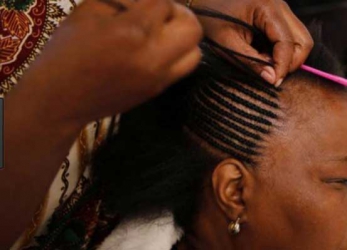
NAIROBI, KENYA: The beauty and personal care industry is fast becoming Kenya’s new investment hub, attracting massive foreign investment by renowned global brands like Yves Saint Laurent, Black Opal and Oriflame among others. It is also one of the fastest growing industries in Kenya having grown by 400 percent in four years from Sh 26 billion in 2011 to over Sh 100 billion in 2015, according to KPMG estimates.
The growth in beauty products and services can be attributed to increased discretionary spending and urbanisation. Market growth is also fueled by a large demand of millennials who want to try new looks - for the perfect selfie shot. This is coming against the backdrop of a handful giant cosmetic manufacturers gradually coming back after keeping away from Kenya out of lack of skilled manpower, the belief that there was low demand for their products and assumption of the country being a low spending power region.